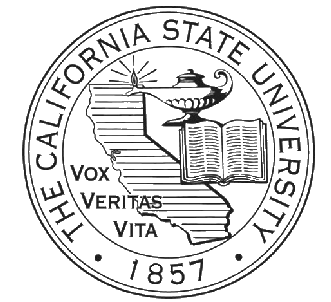In the hustle and bustle of applying to colleges through the Common App, it’s easy to forget about schools on different applications. Applications for California’s public schools (the Cal States and the University of California) are due on Monday, November 30th. And you want to plan ahead to give yourself enough time to properly work through both applications.
The Cal State application is pretty straightforward. Make sure to have your transcript and social security number on hand and you should be good to go! The application will take you step-by-step through all the various components. It can also be helpful to have additional information, like your family income or California Student Identification Number, but these are not required for submission.
The trickiest element of the Cal State application is calculating your Cal State GPA. This GPA may be different than the one on your transcript because it is unweighted and includes only academic classes taken in 10th and 11th grade. Luckily, there is a link right below the box for GPA that will walk you through the calculation.
Although you will need to submit a separate application for each Cal State campus that you are interested in applying to, you will not have to re-enter the information each time. Once you submit your first one, the application program will automatically fill in all of the information (with the exception of the school-specific questions like major) in each sequential application.
 You do not submit a copy of your transcript or letters of recommendation to the Cal States, but you will need to send in your ACT or SAT test scores. They won’t consider your application complete without them! Note that regardless of how many Cal State campuses you are applying to, you only need to submit your scores once to CSU Mentor.
You do not submit a copy of your transcript or letters of recommendation to the Cal States, but you will need to send in your ACT or SAT test scores. They won’t consider your application complete without them! Note that regardless of how many Cal State campuses you are applying to, you only need to submit your scores once to CSU Mentor.
The UC Application is a bit more involved. In addition to entering your personal and academic information, the UCs are also interested in your extracurricular activities, your honors and awards, volunteer work and even employment. Check out our blog on Tips for Filling Out Your UC Application. You can also learn some behind-the-scenes information on UC Admissions in our post Getting Up-to-Date on the UC Application & Admissions.
The UCs require two personal statements, with a maximum combined total word count of 1,000. Freshman applicants are ask to respond to both:
1) Describe the world you come from — for example, your family, community or school — and tell us how your world has shaped your dreams and aspirations.
2) Tell us about a personal quality, talent, accomplishment, contribution or experience that is important to you. What about this quality or accomplishment makes you proud and how does it relate to the person you are?
Personal statements can challenge even the most seasoned of writers because, aside from an unforgiving word limit or a fairly generic prompt, they offer few hard guidelines. While being able to pick your own topic is freeing at first glance, it can also be paralyzing, especially when you are reminded at every turn that this is the primary opportunity to make your application stand out from the pack.
Before you even being writing, the personal statement should be about thinking. Consider who you are and how you got here. Once you have an idea that speaks to you, release the expectation that it should say everything possible about you. Instead, use it to show one authentic piece of yourself. To be compelling, it needs to be specific. But know that if it’s specific, it’s not going to say everything that could possibly be said about who you are; no admissions reader expects it to.
Give your personal statement the time and attention it deserves. Although, yes, it is a college application requirement, at its best, it is also an opportunity for you to take stock of your story thus far. When you do the work self-reflecting, it brings your accomplishments into stark relief and might even clarify for you where you want to go next.
Perhaps most importantly, have someone else look over your statements. This can be a parent, a teacher, a counselor or even a friend. Another set of eyes will give you a sense of whether your statement is working when it’s read by someone who is not privy to the ideas in your head. For more information on writing your personal statement, check our previous post about Starting to Write Your Personal Statement.
So now’s the time – head on over to the Cal State app or the UC app and get ready to apply to college. After all, hitting that submit button is an accomplishment in itself!

